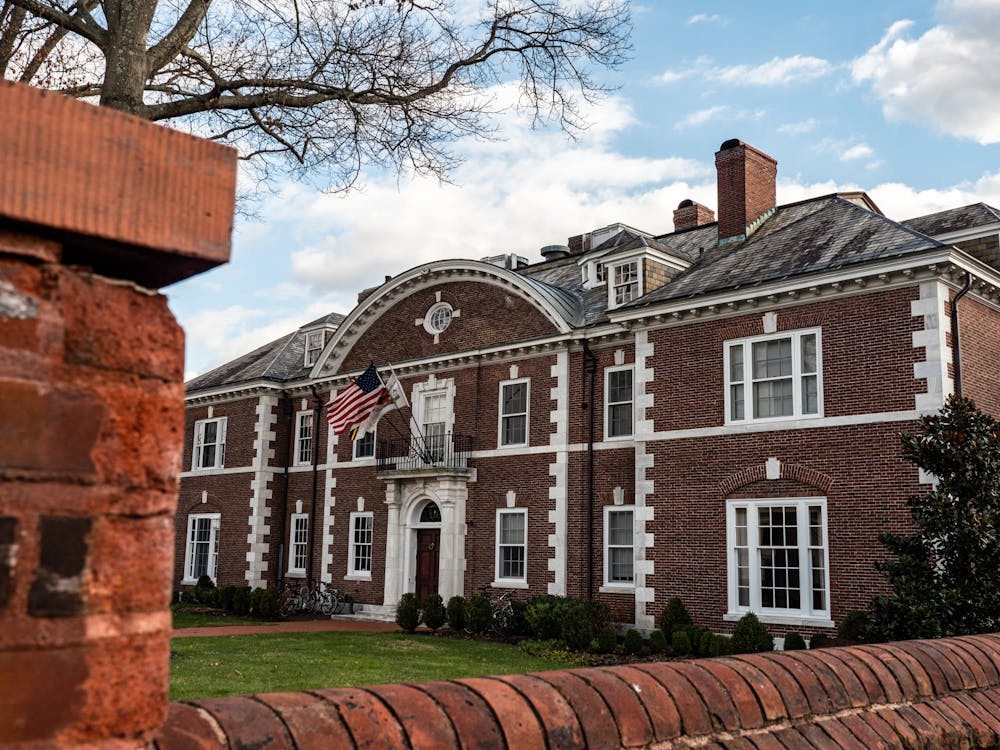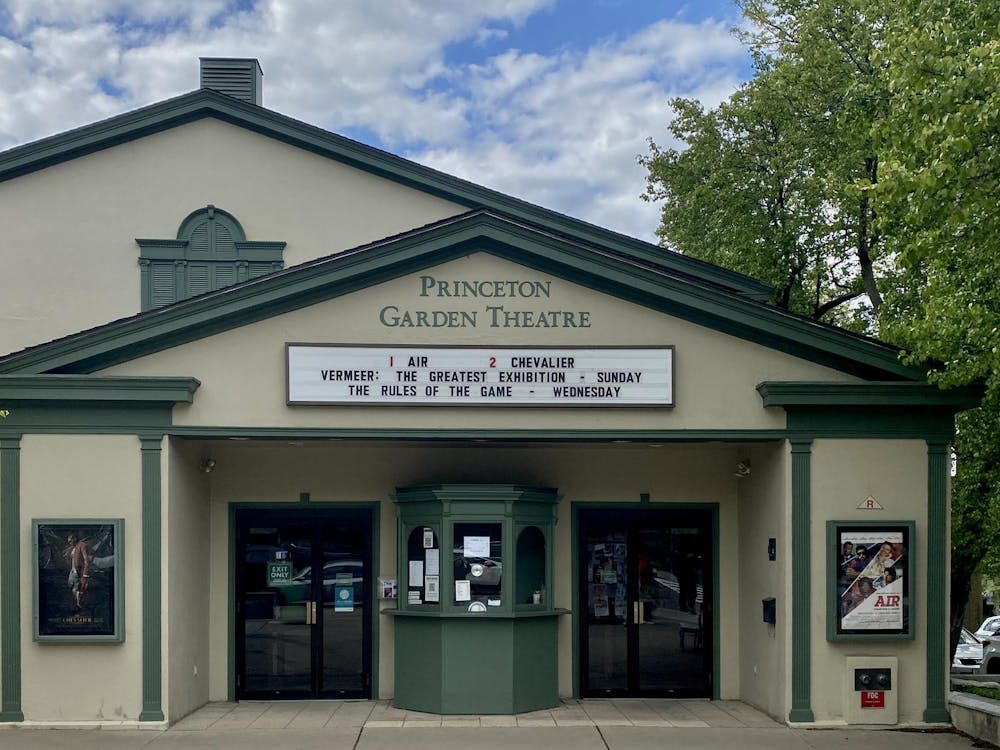In what would have otherwise been a busy seven-day bustle of undergraduates filing in and out of the grand mansions of the eating clubs on Prospect Avenue, colloquially “the Street,” this year’s virtual Street Week came to a close on Feb. 4.
According to a recent press release from the Interclub Council (ICC), 70 percent of the Class of 2023 and a total of 814 undergraduates participated in this year’s Street Week.
Of the sophomores who participated in Street Week this year, 76 percent bickered two selective eating clubs, an increase of 14 percent from last year. Seventy-two percent of sophomores who bickered a selective club were admitted to one, consistent with last year’s proportion.
The percentage of sophomores admitted to their first or second-choice eating club, however, decreased compared to last year — from 93 percent last year to 87 percent.
The ICC did not release any club-specific data, and a majority of club presidents did not respond to requests for comment from the ‘Prince’ or declined to provide statistics. However, the ‘Prince’ was able to solicit some data on this year’s Bicker placements in certain eating clubs from a few eating club members who shared messages from club leaders or other internal documentation under the condition of anonymity.
The Cap and Gown Club saw the most bickerees of any selective club according to a member of the club, with a 41-student increase compared to last spring. The club admitted 90 sophomores and 10 juniors out of a total 267 bickerees, yielding an acceptance rate of 37.5 percent.
Tower Club also saw an 33-student increase in bickerees from last year’s in-person Bicker, according to a message from club officers. Still, the club admitted the second-highest rate of bickerees among the selective eating clubs at 52.9 percent, comparable to last year’s 52 percent. Tower admitted 135 out of 255 bickerees.
Cottage Club had the lowest acceptance rate compared to all other Bicker eating clubs at 33.9 percent, with 65 of the 192 bickerees admitted according to a club member. Last year, 95 of 195 bickerees were admitted to join Cottage.

As for Ivy Club, 196 undergraduates took part in the Bicker process according to a member of the club, compared to “around 220” who reportedly did last spring. Of those 196, 34.1 percent were admitted, a slight increase from last year’s reported 33 percent. Sixty-two of those accepted were sophomores.
Tiger Inn (TI) had 168 bickerees according to a message from club officers obtained by the ‘Prince,’ a drop from the “approximately 200” students who reportedly bickered last spring. Because of this drop, TI will conduct fall Bicker next semester for the first time in the club’s history, according to a message from TI’s president forwarded to the ‘Prince.’ Of the 168, TI admitted 70, yielding an acceptance rate of 41.6 percent, a slight increase from last year’s reported 39 percent.
At Cannon Dial Elm, 125 undergraduates bickered and 68 were admitted according to documents viewed by the ‘Prince,’ resulting in an acceptance rate of 54.4 percent. Multiple club members told the ‘Prince’ last spring that roughly 170 students had bickered. Cannon's acceptance rate exceeds last year's rate of 53 percent, and was the highest among Bicker clubs this year.
The ‘Prince’ was unable to obtain data on how many students joined each sign-in eating club.

Virtual Bicker itself took place over three days from Jan. 24 to Jan. 26, with two black-and-orange sessions per day for those who elected to bicker two selective clubs, and eating club admissions were released on ICC’s website at noon on Feb. 5.
While most selective clubs held their virtual Bicker at three set times, a few — namely, Cottage — had bickerees schedule conversations with their members throughout the week. They also held a game night and get-to-know-the-club event for the first night of Bicker.
“Cottage had a messier organization, but the introductory game night was very fun and engaging together with its members,” said one sophomore who bickered Cottage and Ivy and joined Ivy. “Our assignments for Cottage contacted us individually, sometimes asking for our availability instead of giving theirs first, which I think was a bit uncomfortable.”
Most eating clubs resorted to the popular online conferencing platforms Zoom and Glimpse for virtual Bicker. While the process ran smoothly for the most part, according to the bickerees interviewed by the ‘Prince,’ technical glitches and difficulties still abounded during this year’s virtual Bicker.
Glimpse, used for one-on-one conversations between bickerees and club members, was reported to have crashed multiple times for some bickerees during virtual Bicker. A few students who bickered Cap and Gown Club even mentioned having to wait more than 45 minutes to be matched with an eating club member on Glimpse.
Despite the technical glitches, however, some bickerees expressed their preference for one-on-one conversations on Glimpse to breakout room conversations on Zoom with multiple bickerees.
“When you’re in a room with multiple bickerees, you almost feel like you’re in a competition with the other bickerees,” said one sophomore who bickered Cap and Gown and Tower and joined the former. “If one seems to be hitting it off with the member, you have to step up because they’re gonna get in and you’re not.”
For those who were not able to match with enough people due to technical difficulties or other reasons such as time-zone conflicts, each eating club held make-up sessions after Street Week to ensure bickerees were all given the same chance to speak with members before the club members deliberated.
Some clubs, including Tower, also matched bickerees with a Bicker “buddy,” a club member who served as a point of contact throughout Bicker to streamline the process for each bickeree — and employed other safeguards to ensure all bickerees had a fair Bicker process.
“During Bicker, Tower Bicker Committee kept in constant contact with our bickerees, working through technical, time zone, and miscellaneous problems to put bickerees at ease,” wrote Tower Club President Savannah Hampton ’22 in an email to the ‘Prince.’ “We distributed a form each night where bickerees could submit problems or general feedback to ensure we could improve the process throughout the week while ensuring safety and comfort for bickerees.”
While the unprecedented virtual Bicker had its share of difficulties and glitches, bickerees contacted for this article all concurred that eating club staff and members did a good job adapting the age-old Princeton tradition of Bicker to virtual platforms in light of current circumstances.
“I think virtual Bicker went really well for something that’s never happened before,” said one sophomore who bickered Cannon and Cottage and joined Cannon.
Some even found the virtual Bicker process less intimidating than in-person events and more favorable to meet and interact with new students.
“I think the Bicker being virtual made it a little bit less stressful than if it were in-person,” said the sophomore who bickered Tower and Cap. “An awkward face-to-face encounter would be more scary than an awkward virtual encounter.”
Still, a few bickerees interviewed lamented the competitive selection process of Bicker that, as the student who joined Cannon said, “perpetuates a culture of exclusion within Princeton.”
“I agree that Bicker is a flawed process, but once you set up a system of arbitrary exclusion in terms of any selective process, it is going to be flawed inherently,” they added. “After Bicker every year, there is a bunch of Bicker discourse, and every year nothing happens.”
As controversial as the Bicker selection process may be, all bickerees interviewed affirmed enjoying talking with members of the clubs and sharing information about themselves during virtual Bicker.
“I enjoyed my bickering experience a lot, especially after going through this pandemic far away from Princeton,” said the student who bickered Ivy and Cottage. “It was refreshing to talk to so many people and feel a part of the Princeton community whose values all my bickering assignments perfectly embodied: respectfulness, openness, and uniqueness.”
The enthusiasm that certain bickerees expressed was also reciprocated by some of the club members themselves.
“Bicker this year was a huge shift from previous years, but all the credit in the world goes to our Bicker Committee for putting in the brain power to set it up, the emeritus officers for enacting these ideas, the Tower members for bringing energy and passion to the process, and of course all the bickerees for showing such great enthusiasm for the process online,” Hampton noted in her email to the ‘Prince.’
Per ICC policy, all sophomores who participated in the Street Week were accepted to an eating club for the third consecutive year.








